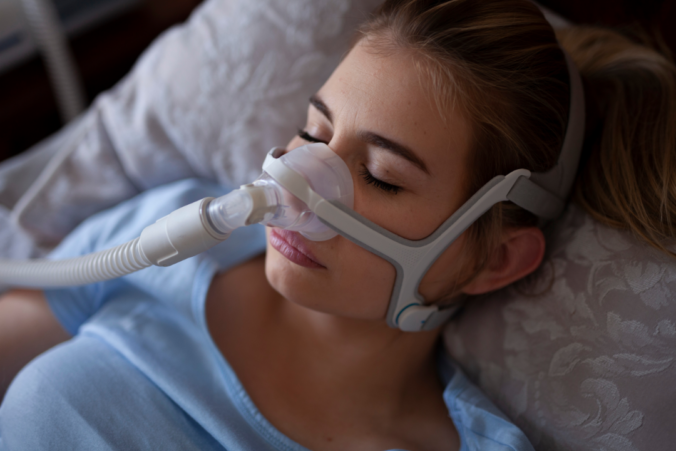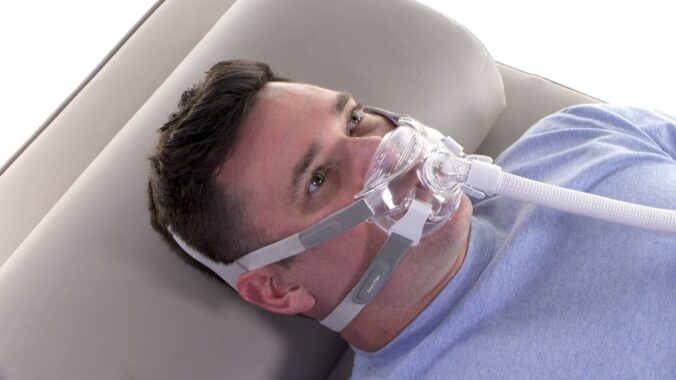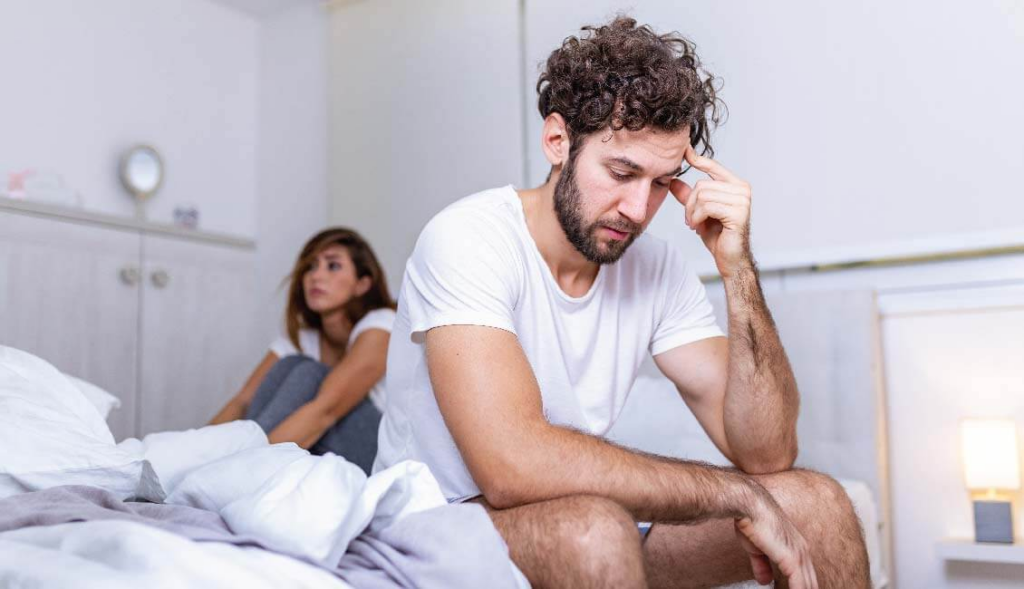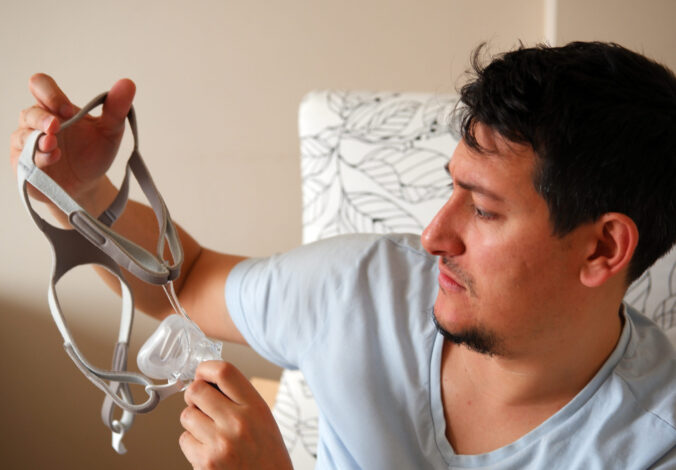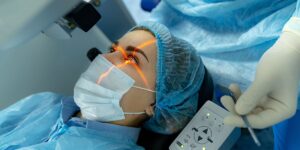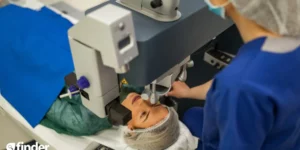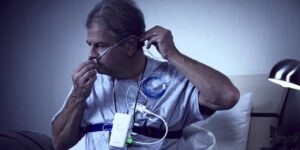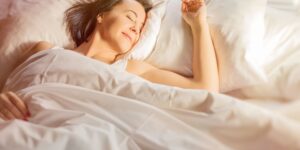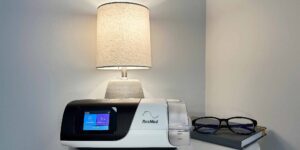CPAP mask is a machine that is recommended as a device used to correct sleep apnea obstructions. This machine came into existence because so many people have obstructive sleep apnea, which becomes a huge issue in their breathing. In contrast, they sleep, which is why a CPAP mask, face mask, nasal mask, and pillow mask are necessary and very useful to sleep well in bed.
When you breathe comfortably, beauty signifies your health is good. But when you have an issue with your breathing, it becomes hard to have a sound sleep not until you do CPAP therapy and know the proper treatment and the suitable mask, and even the forehead support
Wearing face masks, sleep apnea masks, nasal masks, glasses, and even headgear helps your breathing at night. However, so many things are responsible for obstructive sleep apnea. Still, introducing a CPAP mask or CPAP machine has helped and assisted people with sleeping disorders.

The wear of a CPAP mask or CPAP machine helps in passing or supplying constant pressure air to the nose. Because the air pressure goes to your mouth and nose. the mouth breather needs more air pressure to breathe appropriately. Know that the best CPAP mask lies with your therapist. All the mask types work well, but some are for specific conditions.
Though sometimes, sleeping position causes obstructive sleep apnea, some people may open their mouths while sleeping, which makes the throat easily blocked. We’ll be looking at the categories and the usefulness of masks in this article and the best CPAP mask or the right CPAP mask for you.
CPAP Masks Categories
There are CPAP mask categories, and they are in different forms depending on what your sleep specialist recommends for you use. It is essential to do CPAP therapy because it guides your sleep. Which CPAP masks will comfortably fit and seal your face to cover both mouth and nose without any skin irritation? Even though we have different CPAP masks, they all make sleeping easy and comfortable. First, let’s discuss the types of CPAP masks. There are many CPAP machines, but I will discuss three CPAP masks.
Nasal pillow masks
This CPAP mask has a small silicone cushion that helps in covering the nostril side entirely from air leakage and also blocks any external flow of dust to the nose. Also, this nasal pillow helps in wearing the glasses conveniently.
Full face masks

This CPAP mask is recommended for some who find it hard to breathe while they sleep or can only breathe through their mouth. If there is also a closure in your nose while you are, your sleep specialist may prescribe this CPAP mask for you. This type is a full-face mask that covers the entire mouth and nose, and the shape is always triangular.
Must Read:
- Why Choose the Best Laser Eye Surgery Options
- Laser Eye Surgery Sydney: A Comprehensive Guide
- Sleep Study Brisbane: Assessing Sleep Quality in Queensland
- Sleep Study Sydney: Analysing Sleep Health in New South Wales
- Sleep Apnea Machine Features: What to Look for in Your Device
Nasal CPAP mask
This one gives you constant air pressure to the nose. Sometimes this particular one is prescribed for people who move around in bed during sleep. The nasal cradle cushion is designed to cover the nose from attracting dust which can block the airstream.
CPAP masks have many usefulness or benefits because many people’s health has been jeopardized due to obstructive sleep apnea. Unfortunately, reports say that over 30% of people are living with this sleeplessness, causing many health challenges.
People with a sleeping disorder who are not yet diagnosed and treated are vulnerable to stroke, depression, and cardiovascular matters. Therefore, it is essential to know your health’s state and do the necessary check-up. CPAP therapy and CPAP treatment have great usefulness and benefits to people’s health. When you sleep comfortably, it is a sign of good living.
We will discuss the usefulness of sleep apnea masks and other mask types that hasten sleep therapy. All these masks, like full face masks, nasal pillows, face CPAP masks, nasal pillow masks, and nasal masks, contribute a lot to the treatment.
The usefulness of CPAP Masks

Blood pressure
CPAP machines help in lowering blood pressure. However, it is essential to know that when sleeping becomes complex, the blood is pressured, and the health is not safe, which can lead to heart disease and stroke. The CPAP mask treatment regulates blood pressure.
Heart failure
CPAP therapy can also improve the heart’s function, no matter the issue with the heart. For example, heart failure can be regulated with sleep apnea mask treatment because CPAP allows the heart to pump blood to the heart regularly.
Reduces sleeping in the daytime
Sleeping disorders affect your sleep at night, which will tell you during the day. While some are awake and active during the day, you feel sleepy and dull. This therapy will activate your energy during the day. In addition, the CPAP treatment will affect your sleeping habit. The work of the nasal mask and the face mask is to enable you to sleep at the right time.
End snoring
Most of the time, people snore because the airway is blocked or narrow, and also the sleeping position of some people affects their sound. But this can be corrected through the CPAP mask because the mask will open the airway.
Mental health enhancement
When someone is nursing a sleeping disorder without going for treatment, such may suffer mental health imbalance. Because sleeplessness significantly combats mental. Depression, dullness, laziness, and even cluelessness will the giants facing such. But when CPAP therapy and face masks are used, it will reduce the potency of depression and other associates. So the CPAP mask treatment enhances mental health.
Reduction in the Risk of Accidents
The accidents on our road can be traced to the insufficient sleep of some of the drivers. When you cannot sleep at night, the body will automatically request it during the day. Sleeping disorders can affect how drivers focus or make quick decisions on the road. The only way to prevent and curb car accidents is to sleeplessness. Quality and maximum can be achieved with the CPAP masks.
Irregular heartbeat [arrhythmia]
Sleeplessness also can make the heart beat irregularly. Either too fast or too slow. Most of the time, anyone who breathes inconsistently has sleep apnea. CPAP treatment can correct such a heart. Quality sleep is inevitable, and it puts all the body functions together. Your body’s functions determine how many hours you sleep at night. CPAP helps your nose and mouth to function properly during your time of sleep.
Conclusion
CPAP masks are beneficial machines that significantly improve sleep apnea patients’ health. Sleep is so essential and instrumental to our well-being. Both mouth breathers and people with stuffy nose issues can be corrected and improved with CPAP therapy and treatment. This article will enlighten you about the dangers of obstructive sleep and also tell you about the solution. A CPAP mask will help you sleep at night.

